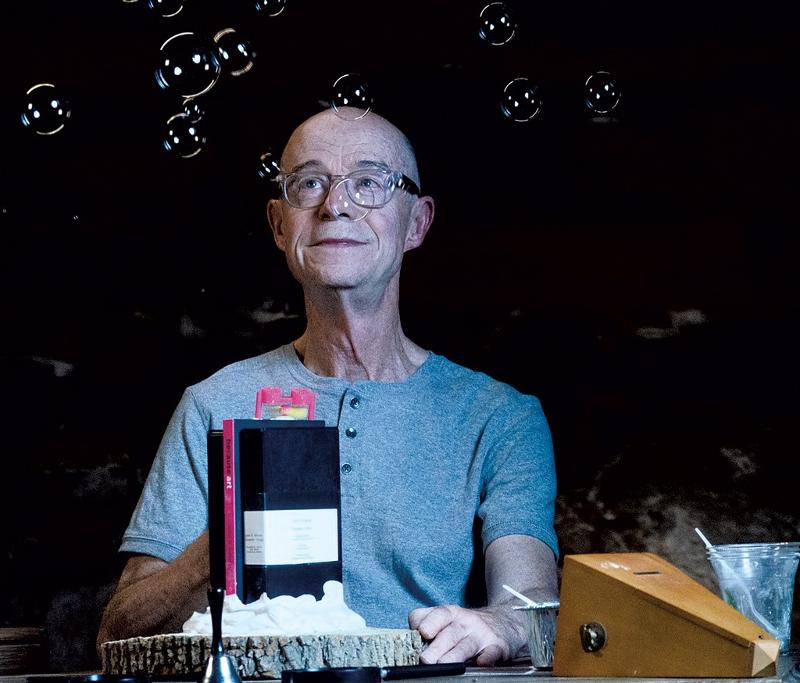Welcome to FluxFest at Champlain College, where the vibrant spirit of the Fluxus art movement is reignited. In this three-week festival, we invite you to immerse yourself in the world of Fluxus, a groundbreaking movement that challenged traditional notions of art. Join us as we explore the origins, impact, and contemporary relevance of Fluxus through captivating performances, thought-provoking exhibitions, and engaging discussions. Get ready to experience art in a whole new way!
Unearthing the Fluxus Movement
Explore the origins and essence of the Fluxus art movement
The Fluxus art movement, born in the 1960s and '70s, aimed to redefine the boundaries of art and democratize its creation. Artists challenged traditional notions of art by creating 'event scores' that emphasized process over the final product. Learn about the key figures and groundbreaking works that shaped the Fluxus movement.
Discover how Fluxus artists like Yoko Ono, Nam June Paik, and Joseph Beuys used everyday actions and objects to create thought-provoking and often humorous art. From lighting a match to smashing a violin, Fluxus challenged the conventions of art and invited viewers to engage with the creative process.
FluxFest: A Contemporary Homage
Experience the immersive FluxFest at Champlain College
FluxFest at Champlain College is a three-week festival that celebrates the legacy of Fluxus and its influence on contemporary art. Immerse yourself in a dynamic program of performances, exhibitions, and discussions that pay homage to the spirit of Fluxus.
Join artists, students, and faculty as they come together to showcase their Fluxus-inspired work. From captivating performances to thought-provoking exhibitions, FluxFest offers a unique opportunity to engage with the principles and philosophy of Fluxus in a contemporary context.
Don't miss the roundtable discussion led by John Killacky, the artist-in-residence at Champlain College and the driving force behind FluxFest. Hear from original Fluxus member Nye Ffarrabas, gallerist Adam Silver, and collector Mark Waskow as they share their insights and experiences with Fluxus.
The Essence of Fluxus
Delve into the core principles and themes of Fluxus
At the heart of Fluxus is the belief that art should be accessible to all and that the creative process is just as important as the final artwork. Fluxus artists embraced experimentation, interdisciplinarity, and audience participation, blurring the boundaries between art and life.
Explore the themes of humor, playfulness, and social commentary that are central to Fluxus. Discover how Fluxus artists used their work to challenge societal norms, question authority, and provoke thought. Experience the joy and irreverence that permeates Fluxus art.
Contemporary Fluxus-Inspired Art
Witness the diverse and innovative Fluxus-inspired works
FluxFest brings together a diverse range of contemporary artists whose work is inspired by Fluxus. From DJ Hellerman, the former curator of the Everson Museum of Art, to conceptual artist Erika Senft Miller, these artists embody the spirit of Fluxus in their artistic practice.
Experience the multisensory installations of Erika Senft Miller, where audiences become active participants in the artwork. Discover the thought-provoking sound designs of John Thomas Levee, who explores the concept of silence through homemade soundproof helmets. Prepare to be captivated by the innovative and boundary-pushing works of these Fluxus-inspired artists.
Fluxus: A Timeless Relevance
Reflect on the enduring significance of Fluxus in today's world
Fluxus may have emerged in the 1960s, but its themes and principles remain remarkably relevant today. In a world grappling with issues of identity, social justice, and the blurring of boundaries, Fluxus offers a unique perspective and a playful approach to addressing these challenges.
Join us at FluxFest to explore how Fluxus continues to inspire and provoke thought in contemporary art. Engage with the works of Fluxus-inspired artists and discover the enduring legacy of this groundbreaking movement.
Conclusion
FluxFest at Champlain College is a vibrant celebration of the Fluxus art movement, inviting audiences to rediscover the spirit of Fluxus and its enduring relevance. Through captivating performances, thought-provoking exhibitions, and engaging discussions, FluxFest offers a unique opportunity to immerse yourself in the world of Fluxus and explore its impact on contemporary art.
Join us at FluxFest and experience the joy, playfulness, and boundary-pushing creativity that defines Fluxus. Discover how Fluxus artists challenged traditional notions of art and embraced experimentation, humor, and social commentary. Engage with the works of Fluxus-inspired artists and reflect on the enduring significance of Fluxus in today's world.
FQA
What is Fluxus?
Fluxus was an art movement that emerged in the 1960s and '70s, challenging traditional notions of art and emphasizing the creative process over the final product. Fluxus artists used everyday actions and objects to create thought-provoking and often humorous art.
Who were some key figures of Fluxus?
Fluxus was shaped by artists like Yoko Ono, Nam June Paik, and Joseph Beuys, who used their work to challenge societal norms and provoke thought. Their innovative and boundary-pushing art continues to inspire artists today.
What can I expect at FluxFest?
FluxFest at Champlain College offers a dynamic program of performances, exhibitions, and discussions that celebrate the spirit of Fluxus. You can expect to engage with Fluxus-inspired works by contemporary artists, participate in thought-provoking discussions, and immerse yourself in the playful and irreverent world of Fluxus.
Why is Fluxus still relevant today?
Fluxus continues to be relevant today as it addresses issues of identity, social justice, and the blurring of boundaries. Its emphasis on audience participation, experimentation, and social commentary offers a unique perspective on the challenges of our contemporary world.

